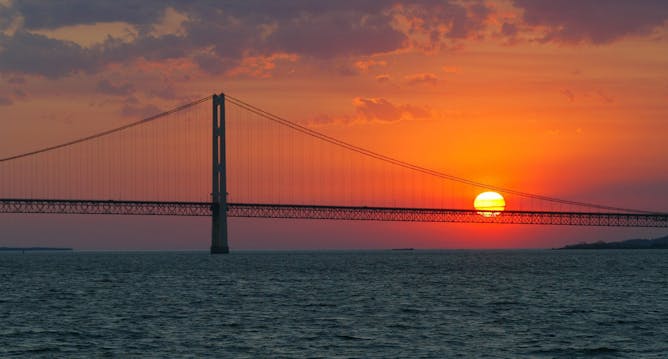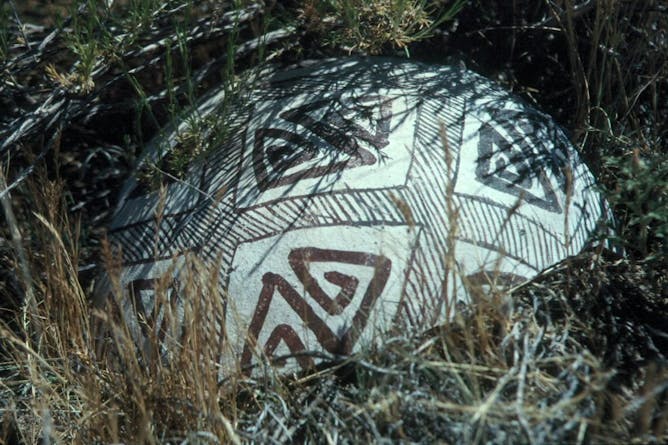Editor's note
|
|
Even though we have tests to scan for the breast cancer genes BRCA1 and BRCA2, many people who carry them are unaware of the fact. Geneticist Michael Murray suggests we need a new strategy to apply all the DNA screening technology to identify those at risk, not just for breast cancer but for many other diseases as well.
With American oil and gas production increasing, there’s pressure on companies to build new pipelines and replace the industry’s decrepit infrastructure. “There are hard compromises to make,” writes Michigan State’s Douglas Bessette, “between ensuring an adequate energy supply, protecting public safety, and reducing the nation’s reliance on fossil fuels – a key contributor to climate
change.” He argues there may be a straightforward way to make these choices.
Is Native American archaeological data in jeopardy? About 30,000 legally mandated archaeological investigations are conducted each year in the U.S. But many firms don’t preserve or share the data in the way they’re supposed to, writes Arizona State University’s Keith Kintigh.
|
Bijal Trivedi
Science and Technology Editor
|

|
|
Top stories
|

Need caption.
Connect world/Shutterstock.com
Michael Murray, Yale University
Individuals who carry the breast cancer genes _BRCA1_ or _BRCA2_ are often unaware of the fact. That suggests that physicians need a new way to apply DNA-based screens to identify those at risk.
|

There’s a bridge over this Michigan waterway and a precarious pipeline beneath it.
AP Photo/Al Goldis
Douglas Bessette, Michigan State University
A big spill in Michigan's Straits of Mackinac could have devastating consequences. But does replacing the pipeline running beneath it make sense in a warming world?
|

A fragment of an ancestral Pueblo jar dating to c. A.D. 1150.
Keith Kintigh, Arizona State University
Keith Kintigh, Arizona State University
Only a small fraction of the data from archaeological fieldwork is made accessible to the public or preserved for future research.
|
Politics + Society
|
-
Leigh Goodmark, University of Maryland, Baltimore
As lawmakers debate the future of the primary federal program aimed at ending domestic violence, one scholar says the criminal system supported by the legislation isn't the way to stop that violence.
-
Christopher Devine, University of Dayton
The true number of people who do not favor either of the two major political parties in the US has actually remained stable in recent years.
|
|
|
|
|
|
|
|
|
|
Trending on site
|
-
Nicholas Tampio, Fordham University
'Fortnite' – the wildly popular video game – is a dangerously addictive, robs students of precious time and teaches individualism instead of cooperating to survive, a political theorist argues.
-
Dylan Selterman, University of Maryland
A professor's extra credit question goes to show how, as humans, we do care for each other. The challenge is: how do we apply it to more pressing problems of the world?
-
Sandra Woien, Arizona State University
American spending on pets is more than the combined GDP of the 39 poorest countries in the world. What if even a small percentage of this spending was allocated to reducing suffering, asks a philosopher.
|
|
|
|
| |
| |
|
|